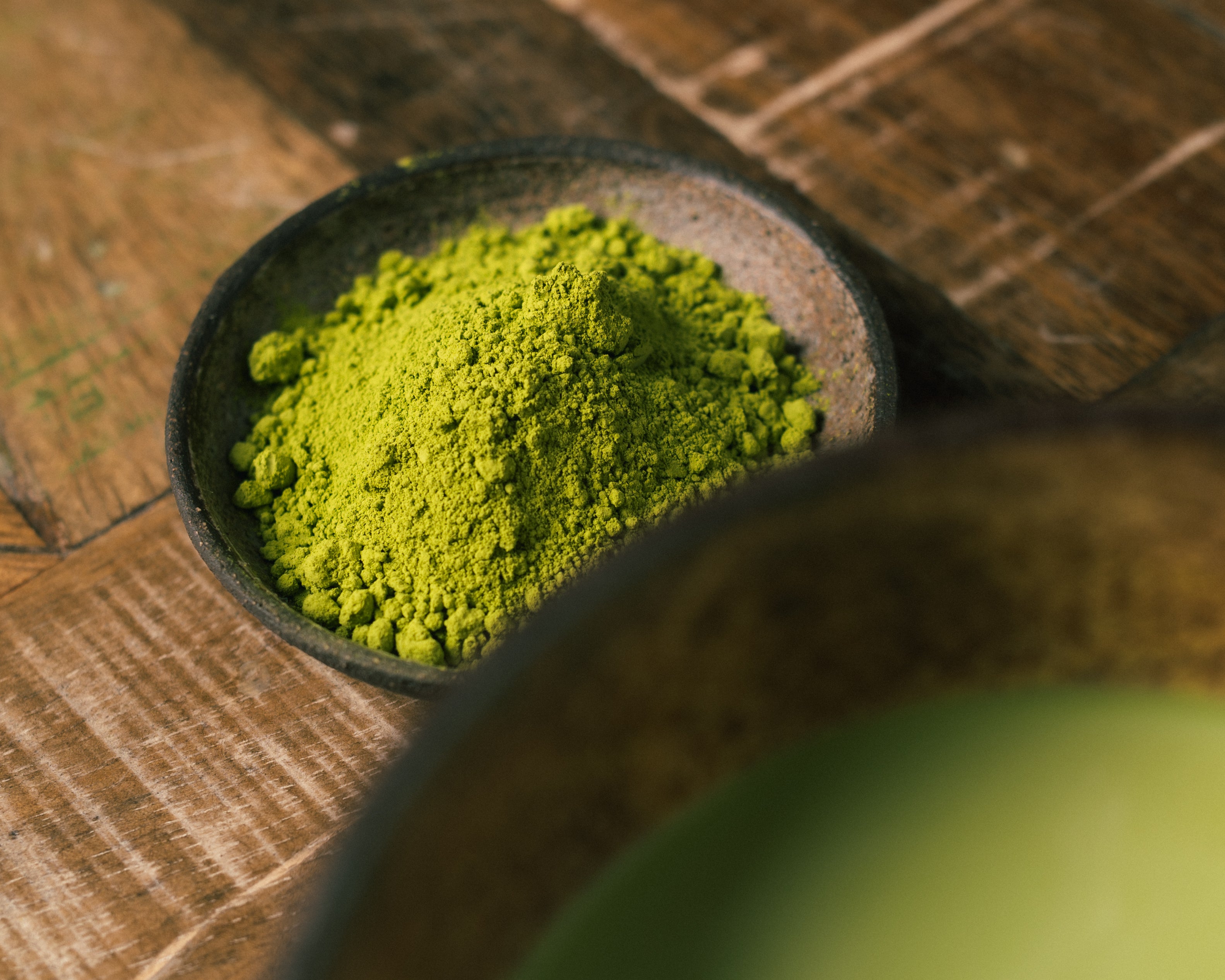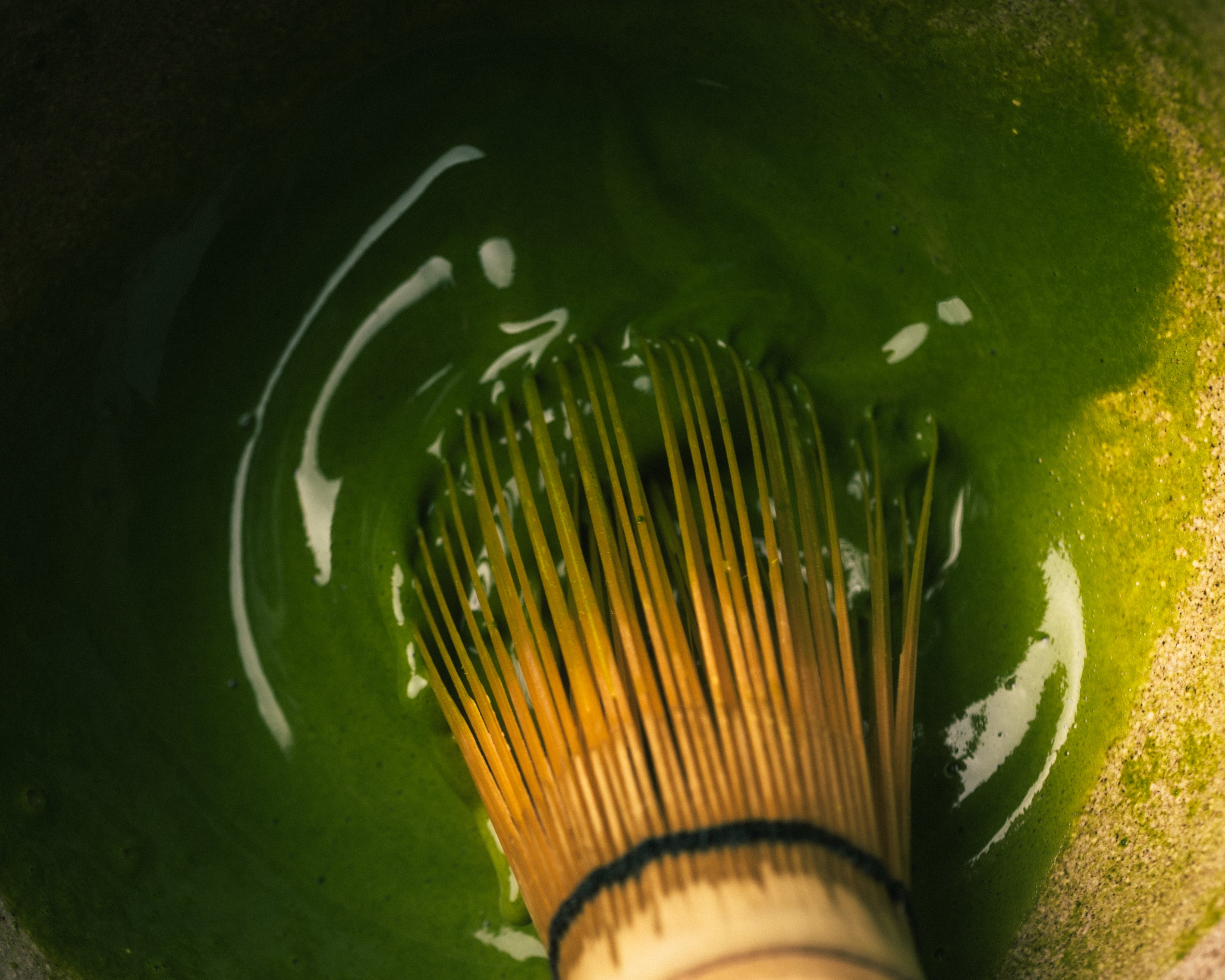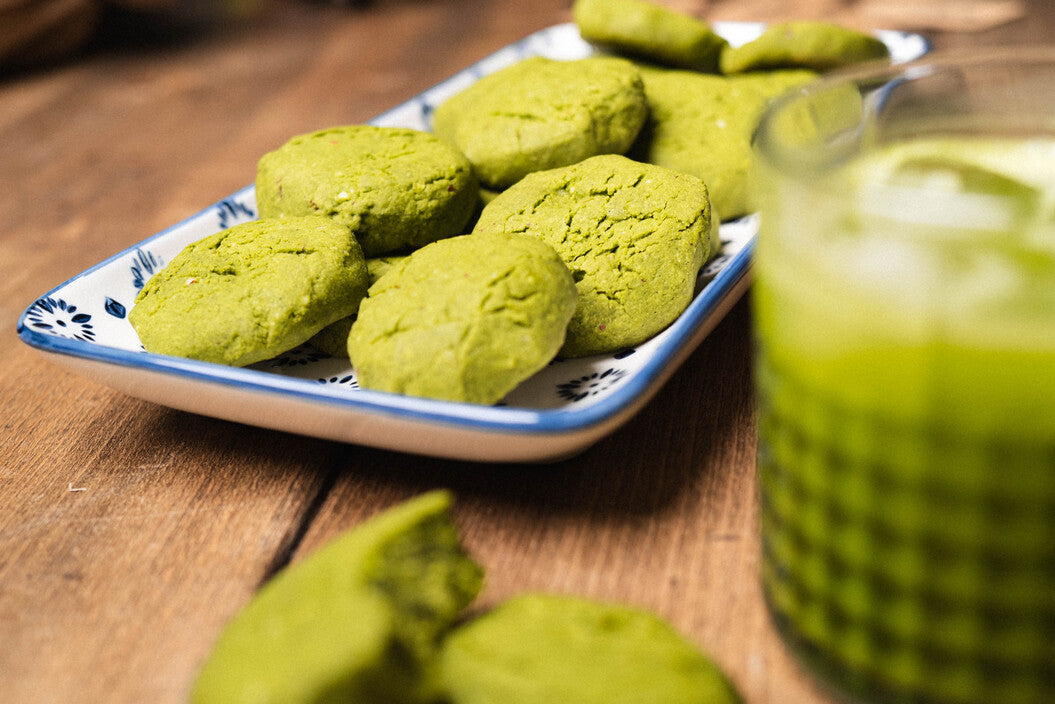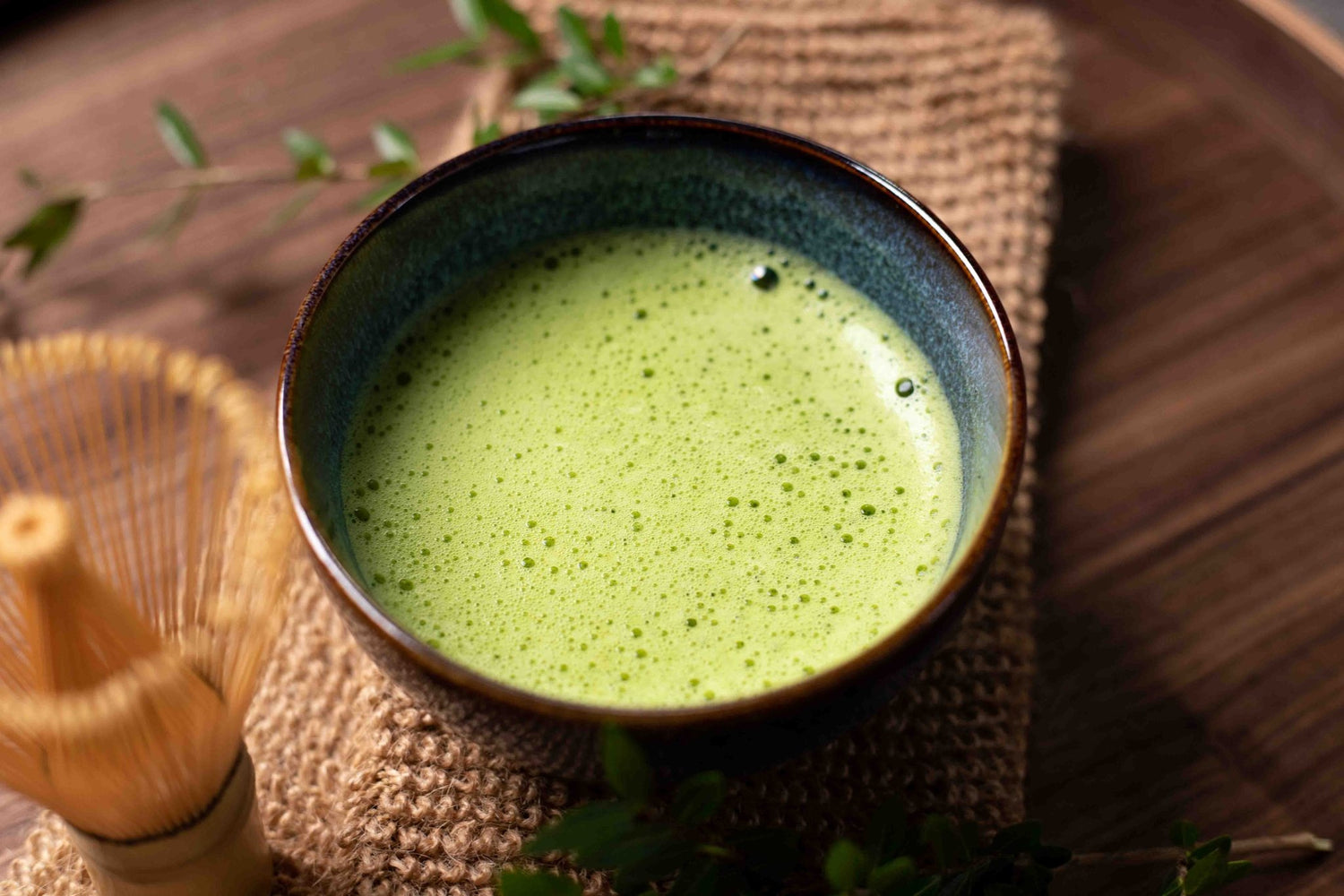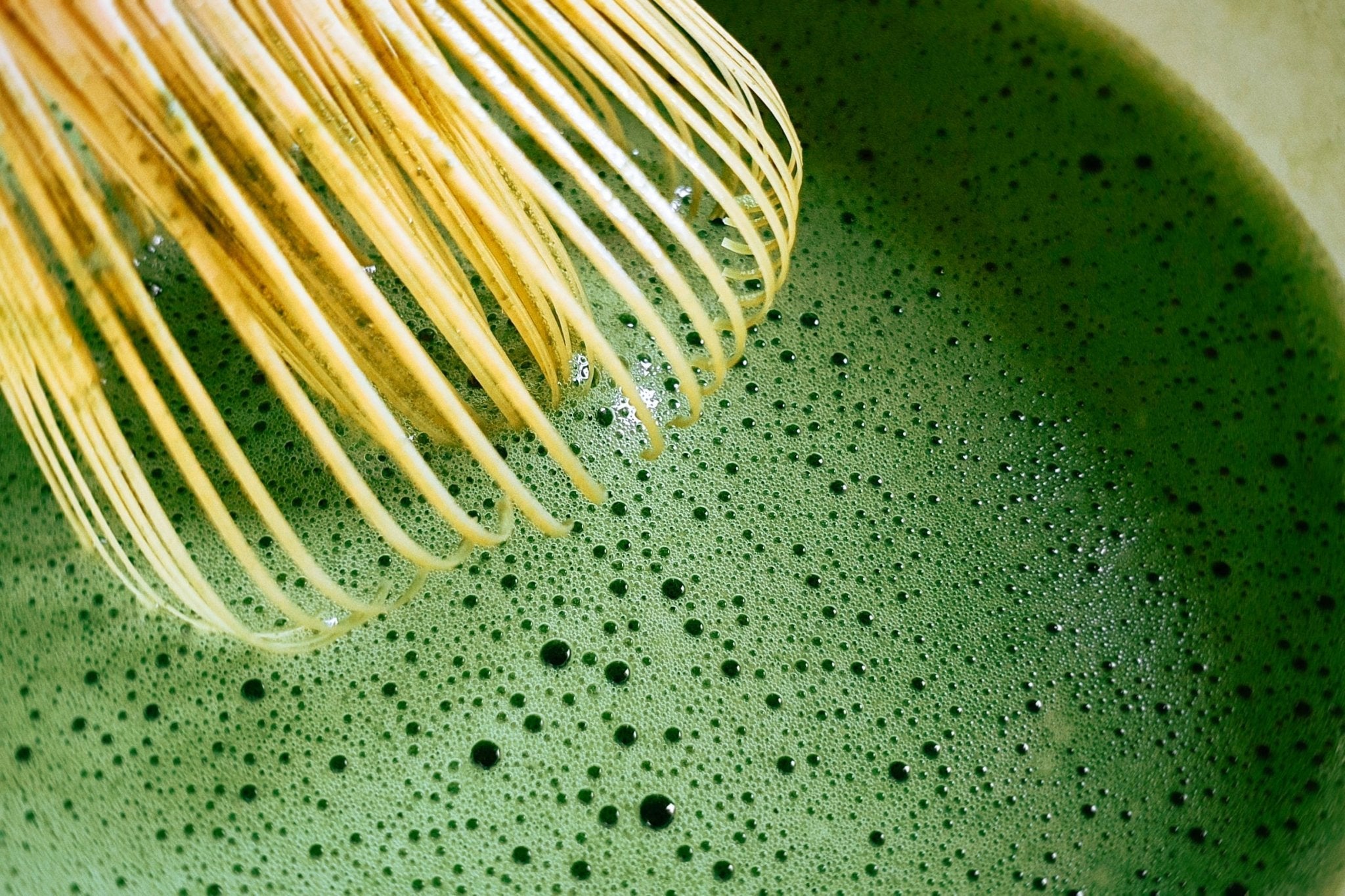Matcha is a type of green tea made from whole tea leaves and therefore contains more nutrients than regular green tea, where the leaves are usually discarded.
In this blog post, you will learn 5 reasons why matcha is healthy.
1. Antioxidants
Matcha is rich in antioxidants such as polyphenols and EGCG (epigallocatechin-3-gallate), which help reduce cell damage caused by free radicals and lower the risk of chronic diseases like cancer and heart disease.
Free radicals are unstable molecules that can form in our body due to environmental factors such as smoking, UV radiation, and air pollution, as well as metabolic processes. If not neutralized, they can damage cells and contribute to the development of diseases.
EGCG is a particularly strong antioxidant and can reduce oxidative stress in the body. It can also help lower cholesterol levels and improve blood sugar control.
The antioxidant effect of Matcha can help reduce the risk of diseases associated with oxidative stress, such as heart disease, diabetes, cancer, and neurodegenerative diseases like Alzheimer's and Parkinson's.
However, it is important to note that antioxidants alone are not enough to prevent or treat diseases. A balanced diet with many different nutrients and a healthy lifestyle are still the most important factors for good health.
2. Energy and Concentration
Matcha contains a small amount of caffeine, but also L-theanine, an amino acid that balances the effects of caffeine and promotes a feeling of relaxation and concentration. This makes Matcha a good alternative to coffee or energy drinks.
L-theanine works by stimulating the brain in a specific way and increasing the alpha wave state in the brain. This relaxes the brain while simultaneously enhancing concentration and attention.
Alpha waves in the brain are usually associated with relaxation and meditation, but L-theanine can help the body relax while remaining alert and focused. This can help reduce stress and anxiety without causing tiredness or drowsiness.
Matcha also contains a small amount of caffeine, which can help increase energy levels. Unlike coffee or energy drinks, which often lead to a quick energy boost followed by a crash, Matcha provides a gentler energy boost that lasts longer.
The combination of L-theanine and caffeine in Matcha is often referred to as "calm alertness," meaning you feel awake and attentive without being nervous or overstimulated.
3. Immune System
Matcha also contains important vitamins and minerals such as vitamin C, calcium, and iron, which contribute to strengthening the immune system and can help prevent colds and flu.
Vitamin C is a powerful antioxidant that can help neutralize free radicals in the body and reduce inflammation. It can also stimulate the production of white blood cells, which are responsible for fighting infections and diseases in the body.
Matcha also contains vitamin A, which is important for the health of the eyes, skin, and mucous membranes. It may also play a role in regulating immune function.
In addition, Matcha contains minerals such as potassium, iron, and calcium, which are important for good immune function and strong bone health. Potassium is important for regulating blood pressure and can also help reduce the risk of strokes and heart disease. Iron is important for the formation of red blood cells that transport oxygen in the body. Calcium is important for bone health and can also help strengthen the immune system.
Overall, Matcha can help strengthen the immune system and protect the body from infections and diseases due to its high content of vitamins and minerals. However, it should be noted here as well that vitamins alone are not enough. A balanced diet with a variety of nutrients and a healthy lifestyle are still the most important factors for good health.
4. Weight Loss
An important compound in Matcha is the antioxidant epigallocatechin gallate (EGCG), which can help speed up metabolism and promote fat burning. Studies have shown that EGCG can increase energy expenditure and help the body use fat as an energy source.
However, it is important to note that Matcha alone cannot work miracles. To lose weight, it is important to maintain a healthy diet and regular physical activity. Matcha can, however, help speed up metabolism and promote fat burning as part of a healthy lifestyle.
5. Anti-inflammatory Effect
Matcha can also help reduce inflammation in the body. This is important because chronic inflammation can contribute to a variety of diseases, including heart disease, cancer, and arthritis.
EGCG and L-Theanine can help reduce the production of pro-inflammatory cytokines in the body and inhibit the activity of pro-inflammatory enzymes. This can help reduce inflammation in the body and treat chronic conditions such as arthritis and heart disease.
Overall, regular consumption of Matcha can help reduce inflammation in the body and treat various health issues. However, it is important to note that Matcha alone cannot replace medical treatment and a doctor should always be consulted for serious health problems.
Conclusion
Overall, Matcha is a great choice for anyone looking for a healthy and natural way to support their health and well-being. Whether you use it as a drink or as an ingredient in smoothies or dishes, Matcha can be a delicious and nutritious addition to your daily routine.

